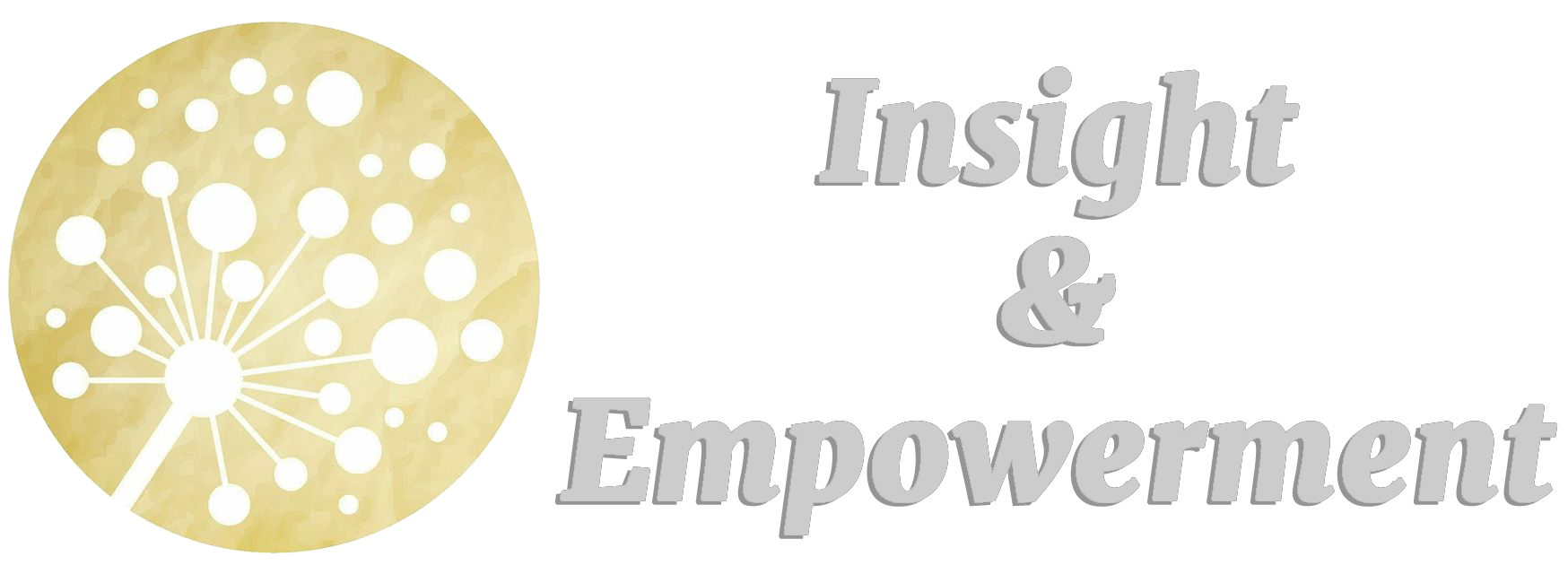Therapy for Teens
Most people will tell you that their roughest years where their teenage years. So many things can come up while navigating this new life stage of developing and finding their identity, goals, and how they relate to the themselves and the world; including peer pressure, self-esteem issues, anxiety, depression, anger and loneliness. Sometimes teens need a space to talk about all these things that are coming up for them without it being their parent or an extended family member, somewhere that is confidential and out of their inner circle.
We at Insight and Empowerment, have experience with gaining teens trust and breaking down oppositional barriers and walls; including silence, anger, and if there are substance abuse related concerns that can be assessed as well. We approach teens respectfully and compassionately and try to understand them at their level of cognitive functioning and emotional maturity. Teens are assisted with learning coping skills, enhancing their relationships and looking at things from a more positive optimistic perspective and focusing on their future goals and transitioning into adulthood.
There are many different types of therapy that may be useful for treating adolescents. In order to choose which type of therapy is right for your teen, it can be helpful to learn more about your options and how each one works.
Basic Principles
CBT is based on the idea that there is a clear link between thoughts, behaviors, and feelings. A teen who thinks they are socially awkward, for example, may then experience anxiety and avoid social interactions. CBT works by helping teens learn to identify their automatic negative thoughts and replace them with more helpful, realistic ones.
Teens often develop distorted core beliefs about themselves. CBT helps confront and modify those distortions. A psychotherapist using CBT would help a teen identify those unhealthy thought patterns that contribute to mental health problems. A therapist may ask a series of questions and ask the person to keep a thought record to help identify dysfunctional thoughts.
Benefits of CBT
CBT helps teens learn how to interpret their environment differently. Compared to other therapeutic approaches CBT is generally short-term. Sometimes, only a handful of sessions are needed.
The approach is also very problem-focused which means it deals with issues in the present. Treatment providers aren't likely to rehash a teen's childhood or look for hidden meaning in their behavior. Instead, sessions focus on helping the teen with problems going on now.
This type of therapy can provide benefits such as:
-
Change negative thought patterns
-
Identify positive responses to stress
-
Improve communication with others
-
Improve self-esteem
-
Interrupt thoughts that lead to addictive or other self-destructive behaviors
-
Reduce fears and phobias
CBT often involves homework assignments. Getting parents involved in supporting a teen's efforts to complete the homework can be key to getting better. Be sure to talk to the therapist about how you can best support your teen's treatment.
Basic Principles
The basic principle underlying this approach is that learning how to accept emotions can help improve psychological flexibility. This skill involves being able to regulate emotions in the short term and set aside feelings until you are able to address them in an effective and acceptable way.
How It Works
This type of therapy utilizes six key strategies to help teens understand their emotions:
-
Acceptance: Instead of avoiding negative emotions, teens are encouraged to observe and accept them without trying to change or deny them.
-
Cognitive defusion: The focus of this step is to change how they react to their feelings or thoughts. By changing this reaction, the emotion then has less power over them.
-
Being present: This strategy focuses on being mindful and aware of what is happening without judging or trying to change the experience.
-
Self as context: The focus of this technique is to help see their thoughts as something separate from their behaviors.
-
Values: ACT works to help teens identify the values that are important to them.
-
Committed action: This type of therapy also helps teens find ways to commit to behaviors that will help them stick to their values and achieve their goals.

Benefits of ACT
ACT can be beneficial for treating a number of conditions. Research suggests that ACT can be an effective tool for helping reduce symptoms of conditions such as anxiety and depression.

What to Expect
During ACT sessions, teens work with their therapist to assess issues in their life that may be creating emotional challenges including relationships, negative self-talk, and stressful events. Sessions often focus on addressing immediate challenges in a teen's life and then move on to addressing past issues and developing new skills.
ACT can be a helpful treatment for teens who are struggling with emotional challenges. By understanding and accepting their emotions without judgment, teens are able to better regulate and manage their feelings.
Dialectical Behavior Therapy (DBT)
Also known as DBT, is a form of CBT that was originally developed to treat borderline personality disorder. It has since been adapted to treat other mental health conditions including attention-deficit/hyperactivity disorder (ADHD), depression, eating disorders, post-traumatic stress disorder (PTSD), and suicidal behaviors.
Basic Principles
The key strategies used in DBT include:
-
Mindfulness, which involves learning how to focus on the present moment without worrying about the past or future
-
Distress tolerance, which involves using techniques such as distraction or self-soothing to better tolerate distressing emotions or situations
-
Interpersonal effectiveness, which focuses on helping teens develop positive, healthy relationships
-
Emotional regulation, which helps teens identify and label emotions and explore ways to cope with their feelings effectively.
How It Works
Teens who are treated with DBT learn behavioral skills in group therapy settings. They also receive individual therapy where they address personal challenges in their life and adapt and practice the new skills they have learned. During treatment, teens can also receive phone coaching from their therapist when they are facing challenges in their daily life.

Benefits of DBT
DBT can help teens achieve greater self-acceptance, gain new skills, and learn to better tolerate distress. Research suggests that DBT can be helpful for treating a range of conditions in both adults and children.

What to Expect
During treatment, teens attend individual sessions as well as group therapy sessions where they receive skills training. During skills training, teens learn new skills, practice these skills in the group, share their experience, and gain support from other group members. Homework to be completed outside of these sessions is also common.
Contact our specialists to get started

